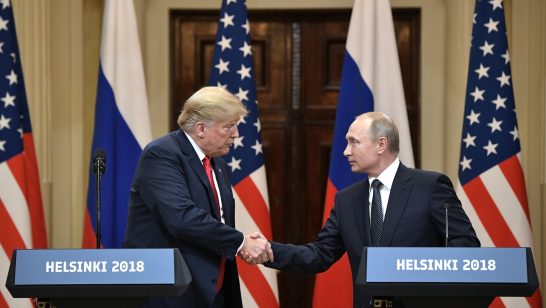
This month, Russia’s Deputy Foreign Minister Sergei Ryabkov stated the latest deployment of US missiles on its border risked a second Cuban missile crisis; Iran showcased its missile capabilities by downing a US drone, narrowly avoiding US military retaliation; India successfully tested its Hypersonic Technology Demonstrator Vehicle; Reports emerged of submarine-launched JL-3 missile test by China; and the US confirmed it will have operational hypersonic missiles in its military arsenal by 2023 – able to reach any global target with one hour.
There are significant and dangerous gaps in current regulatory frameworks. States will continue developing missiles despite interdiction, international condemnation, sanctions and efforts to limit them asymmetrically. This latest ELN Policy Brief, Missile control: it’s not rocket science, calls on Governments to put missiles back on the political agenda to avoid a global arms race.
Recommendations include:
- Putting missiles high on the political agenda through an EU-led missile control summit followed by detailed work in existing formats: First Committee of the UN General Assembly, UN Panel of Governmental Experts on missiles, NPT Review Conference.
- Strengthening existing non-proliferation measures. The Missile Technology Control Regime co-chairs and/or a troika-led regime review should establish proper priorities for cruise missiles, address hypersonic vehicles, short and medium range missiles, cope with new technologies and improve implementation.
- Strengthening existing transparency and confidence building measures. A number of states should further informal talks on reinforcing and/or complementing the Hague Code of Conduct against Ballistic Missile Proliferation and extend its coverage.
- Reduce nuclear-tipped missile-related risks and improve operational safety. Nuclear weapons possessor states could establish a missile incident reporting system and publicly agree that cyberattacks on nuclear command and control are impermissible.
- Address new missile capabilities. Forego arming cruise missiles with nuclear warheads. Negotiate a test ban on hypersonic vehicles and prohibit the placement of nuclear warheads on any hypersonic vehicles.
A sense of urgency in the global missile discussion is needed, and states have an obligation to remove threats to peace. This timely policy brief demonstrates why, and makes practical recommendations for action.
The opinions articulated above also do not necessarily reflect the position of the European Leadership Network or any of its members. The ELN’s aim is to encourage debates that will help develop Europe’s capacity to address pressing foreign, defence, and security challenge.



